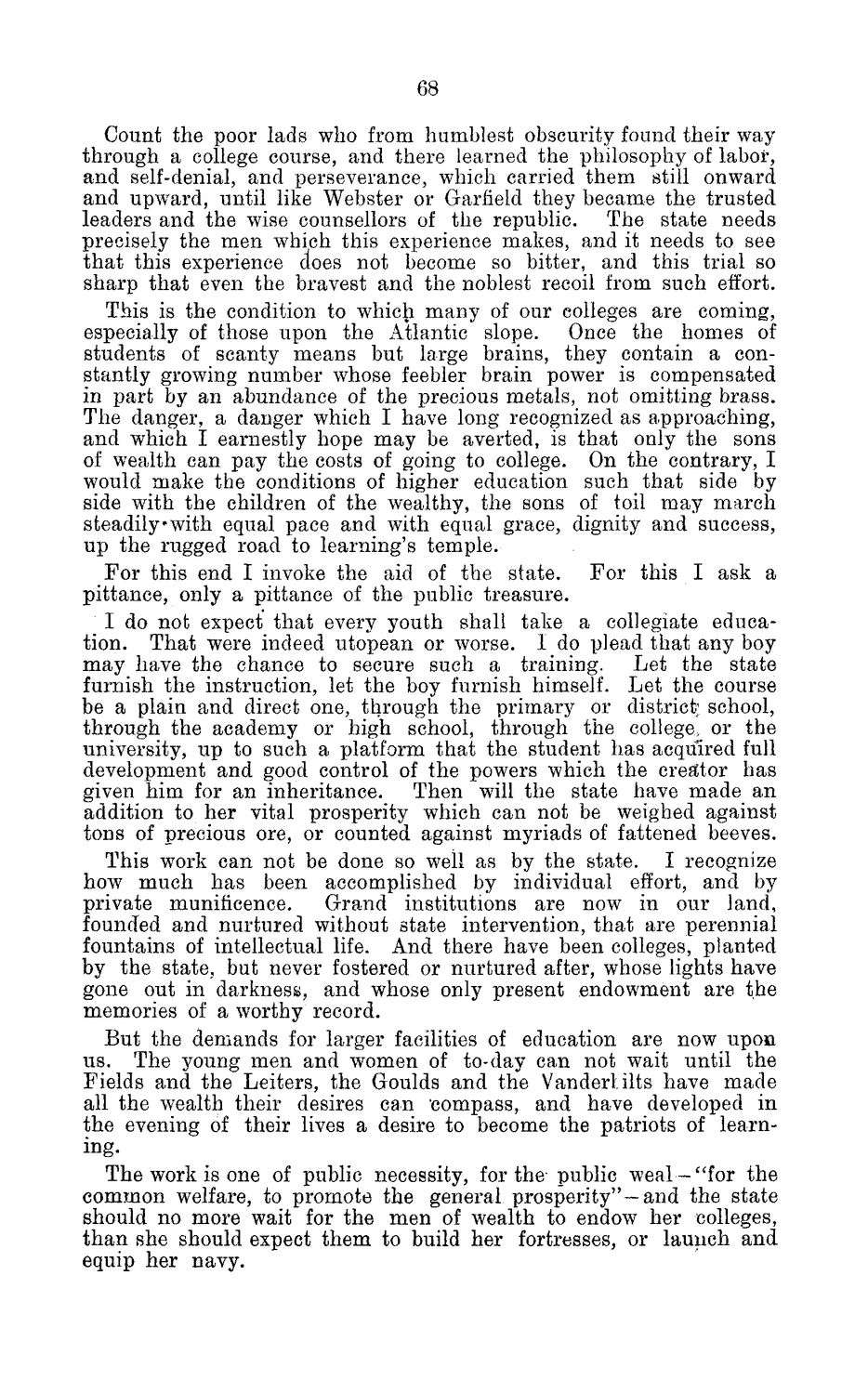| |
| |
Caption: Board of Trustees Minutes - 1884
This is a reduced-resolution page image for fast online browsing.

EXTRACTED TEXT FROM PAGE:
68 Count the poor lads who from humblest obscurity found their way through a college course, and there learned the philosophy of labor, and self-denial, and perseverance, which carried them still onward and upwrard, until like Webster or Garfield they became the trusted leaders and the wise counsellors of the republic. The state needs precisely the men which this experience makes, and it needs to see that this experience does not become so bitter, and this trial so sharp that even the bravest and the noblest recoil from such eifort. This is the condition to which many of our colleges are coming, especially of those upon the Atlantic slope. Once the homes of students of scanty means but large brains, they contain a constantly growing number whose feebler brain power is compensated in part by an abundance of the precious metals, not omitting brass. The danger, a danger which I have long recognized as approaching, and which I earnestly hope may be averted, is that only the sons of wealth can pay the costs of going to college. On the contrary, I would make the conditions of higher education such that side by side with the children of the wealthy, the sons of toil may march steadilywith equal pace and with equal grace, dignity and success, up the rugged road to learning's temple. For this end I invoke the aid of the state. For this I ask a pittance, only a pittance of the public treasure. I do not expect that every youth shall take a collegiate education. That were indeed utopean or worse. I do plead that any boy may have the chance to secure such a training. Let the state furnish the instruction, let the boy furnish himself. Let the course be a plain and direct one, through the primary or district; school, through the academy or high school, through the college, or the university, up to such a platform that the student has acquired full development and good control of the powers which the creator has given him for an inheritance. Then will the state have made an addition to her vital prosperity which can not be weighed against tons of precious ore, or counted against myriads of fattened beeves. This work can not be done so well as by the state. I recognize how much has been accomplished by individual eifort, and by private munificence. Grand institutions are now in our land, founded and nurtured without state intervention, that are perennial fountains of intellectual life. And there have been colleges, planted by the state, but never fostered or nurtured after, whose lights have gone out in darkness, and whose only present endowment are the memories of a worthy record. But the demands for larger facilities of education are now upoia us. The young men and women of to-day can not wait until the Fields and the Leiters, the Goulds and the Vanderlilts have made all the wealth their desires can compass, and have developed in the evening of their lives a desire to become the patriots of learning. The work is one of public necessity, for the public weal—"for the common welfare, to promote the general prosperity" —and the state should no more wait for the men of wealth to endow her colleges, than she should expect them to build her fortresses, or launch and equip her navy.
| |